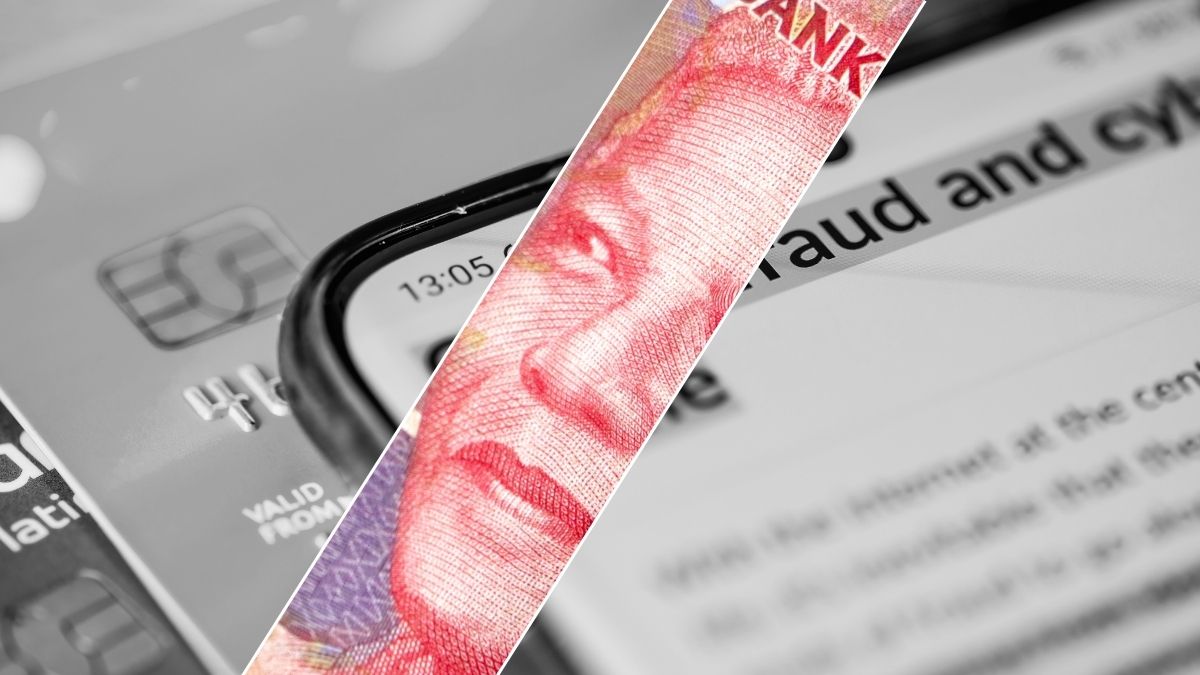
Discovery Bank has issued a strong warning to South Africans planning to book flights, urging them to be cautious of a surge in flight scams.
Discovery Bank said in a message to customers through its banking app that flight scams are taking off as the holidays approach.
The bank explained that fraudsters are posting fake airline ads on social media, tricking people into contacting fraudulent travel agents via WhatsApp.
Victims are then persuaded to download what appears to be an airline app but is in fact a fake version that gives criminals remote access to their devices.
“Once access is gained, the fraudster instructs the victim to log in to their banking app. The screen then goes blank and unauthorised transactions are made,” the bank warned.
It urged consumers to take extra precautions. To stay safe, the bank advised booking flights only through official websites or trusted agencies and being wary of too-good-to-be-true social media ads.
It added that you should never disable your phone’s security settings or allow remote access, don’t log in to banking apps while screen sharing, and never share your banking details, PINs or OTPs.
The bank also recommends verifying the identity of anyone you’re speaking to or the validity of discount offers, and being cautious of pressure tactics, such as those involving urgency or limited-time offers.
The warning comes amid a wider surge in digital banking fraud across South Africa. The National Financial Ombud Scheme (NFO) recently reported a steep rise in complaints.
It noted a 73% jump from 1,436 cases between January and May 2024 to 2,483 over the same period this year.
For the first time, digital fraud complaints have surpassed ATM fraud cases, with more than 3,300 additional incidents reported between January 2024 and May 2025.
Several major banks have raised red flags over the sharp increase in banking app-related scams. Absa, Capitec, Discovery Bank, Nedbank, and Standard Bank all say phishing remains a leading threat.
Digital banking fraud is a major concern

Absa’s chief fraud strategy and analytics officer, Ulrich Janse van Rensburg, said fraudsters are taking advantage of the rapid uptake of mobile banking.
“We’re also seeing a significant increase in investment-and-false goods scams linked to mobile payments that surface on social media platforms,” he said.
He added that most mobile app fraud is driven by customers being instructed by criminals impersonating bank officials to transfer funds to a safe account or to approve transactions.
Capitec echoed these concerns, pointing to a growing trend of coercion. The bank explained that in many cases, victims are pressured into initiating payments themselves under false pretences. “This type of scam is leading to significant financial losses,” Capitec said.
The South African Banking Risk Information Centre (SABRIC) reported that financial crime cost South Africans R2.72 billion in 2024, with digital banking fraud accounting for the majority of losses at R1.89 billion.
Incidents of digital fraud increased by 86% last year, while the value of losses climbed by 74%. Banking app fraud was the single largest contributor, making up more than 65% of all digital banking fraud cases and resulting in losses of over R1.2 billion.
The scale of the problem has prompted regulators to step up their efforts.
Unathi Kamlana, Commissioner of the Financial Sector Conduct Authority (FSCA), recently said that the growing threat of digital fraud requires a sophisticated, coordinated, and collaborative response across regulators, banks, telecommunications providers, law enforcement agencies, and other stakeholders.
Kamlana noted that while digitisation has improved access to financial services and increased efficiency, criminals are exploiting the same technologies.
“Criminals operate as organised networks, sharing data, tools, and tactics across platforms, sectors, and borders. Increasingly, they are deploying artificial intelligence to stay one step ahead of traditional controls,” he warned.
He added that collaboration is essential and that collaboration in the fight against financial crime and fraud is the only viable approach.
To address the issue, the FSCA has launched its Digital Banking Fraud Project, working with the banking industry on fraud risk mapping, real-time monitoring, consumer education, and the disruption of criminal money flows.
The Authority has also intensified its supervisory engagements with financial institutions, stressing that fraud risk is not just an operational issue but a governance and conduct risk that must be tackled at the highest levels of management.
